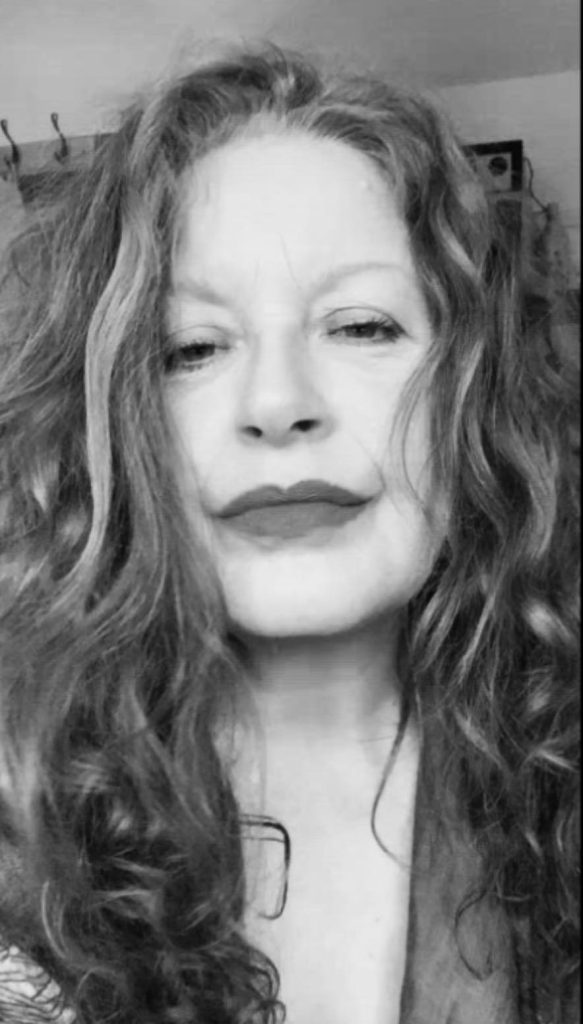
Who Is Lesley Ann Albiston?
I am a screenwriter, playwright, director, actor, artist, facilitator, and mother. Originally from Manchester, I moved to South Wales at age eight where my father worked in a design studio. I grew up surrounded by mountains, coalmines, dragons, and Dylan Thomas.
After studying art and drama, I worked as an actor. With a colleague at The Museum of The Moving Image in London, (sadly no longer there) I co-wrote, produced, and directed my first theatre production, “Seats In All Parts,” a musical set in a post-war local cinema. We utilized the BFI’s free resources; and gained extensive knowledge of the history of cinema, specifically of the effects of WW2 on British Cinema.
Do you remember the exact moment you fell in love with Cinema?
“The Day The Earth Stood Still,” released in 1951, is a science fiction film that combines entertainment with a message to humanity. The film’s themes remain relevant today. The black and white images of the humanoid alien, accompanied by a silver robot and spaceship, issuing a cautionary message to Earthlings, have left a significant impression on me. The movie, along with The Time Machine, sparked my imagination early on, followed by 1960s/70s TV shows like Star Trek and Lost in Space.
I fondly remember watching musicals like West Side Story, American in Paris, Singin’ in the Rain, and Mary Poppins with my post-war musical-loving parents and sisters.
Tell us about your project “Fractures In Time and Visitors Book“.
After writing and directing the stage plays “A Slice Of Eel Pie”, a dark comedy about the Hippy Commune on Eel Pie Island, and “Chop Me Up Or Let Me Go”, a two-person comedy play about social media stalking of a celebrity for The London Fringe Theatre, I wrote a screenplay.
“Fractures In Time” explores the invention of time travel and its implications if everyone could freely move through time. The Swedish American actor Joel Kinnaman is my consideration for the role of Jovan Johannson, the trillionaire genius inventor of time travel. Upon successfully inventing time interception, he faces the decision of whether to utilize it for the benefit of humankind or for personal gain. Notably, a considerable amount of time travel occurs in both directions, which should meet the expectations of enthusiasts of the genre.
Writing about time travel is challenging and ironically lakes time. Much to my delight and surprise, the screenplay has won many Winner Awards at film festivals, with hopes it will become a major sci-fi blockbuster.
Following the widespread acclaim for “Fractures In Time,” I sought to determine if my success in screenwriting could be replicated. Consequently, I wrote “Visitors Book,” which delves into a completely different era and genre.
“Visitors Book” is a contemporary romantic comedy road movie with a Celtic theme. It follows Sienna, a Welsh-Italian art teacher from a school for the deaf, on her mission to return a personal journal left at an Airbnb in Wales. The journal belongs to a scatty Scottish photographer Theodore, working on a series of community and seascape photos for a commissioned book. The film explores the unlikely romance between two shy individuals. “Visitors Book” is winning film festival awards and could be a feel-good hit starring perhaps Scottish actor Jack Lowden. This film features characters working in service and hospitality along the Welsh and Scottish coasts, addressing themes of coincidence, destiny, soulmates, and the importance of kindness. The goal is for the film to be produced and shown in cinemas.

Which Director Inspires you the most?
Contemporary directors, Ben Stiller, Martin McDonagh, and Jesse Eisenberg are individuals whose work I greatly admire.
What issue in the world concerns you the most, and what would you address?
One might focus on addressing climate change, as addressed in “Fractures In Time.”
How do you imagine cinema in 100 years?
Predicting future advancements is challenging. Just as people 100 years ago could not foresee the cinema of 2025 or the development in technology for cars, electricity, and telephones 100 years before that, today’s rapidly evolving technology remains unpredictable for me.
What is your impression of WILD FILM MAKER?
Thank you, WILD FILMMAKER, for providing visibility and respect to filmmakers and writers. I’m grateful for the chance to share my work on your platform.

